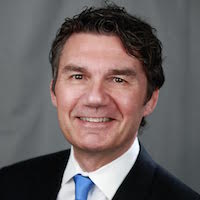Stop Wasting Time on Health Care
How much does it cost an individual to buy medical insurance on the U.S. private market?
July 28, 2009
The healthcare debate is heating up throughout the nation. But is Washington really listening?
We need to consider a reformed system that is fair, covers all Americans, maintains high standards and is commensurate with our nation's standing as one of the wealthiest countries in the world.
Yet false rhetoric seems to be gaining ground, once again.
Members of Congress are currently sitting on their hands while the plight of the more than 45 million Americans without healthcare continues.
In the United States today, people make financial choices that result in the sacrifice of their homes, only so they have a fighting chance to save their lives. Such grave societal injustice is unimaginable in any other advanced economy (and in a growing number of maturing economies).
No Japanese, French or German citizen has ever gone bankrupt over their healthcare needs. Some may wish to belittle the healthcare systems run in those countries as socialist, but all health indicators suggest that they are more effective than the American "gold standard" To add insult to injury, they do so at a fraction of the cost.
For those in Congress who don't want any change, or who cling to the assertion that the market will provide, I have a question. Have you talked to your constituents lately?
What about the woman who has been diagnosed with cancer, but who has to choose between losing her savings and chemotherapy? Or the man whose insurance company dropped him after he was afflicted with a serious heart condition?
Are you indifferent to the bad fortune of the "remaining" uninsured Americans because all 535 of you are covered by a government healthcare plan sponsored by taxpayers?
Have you read the polls that show that 76% of the American people, Republicans and Democrats — not Socialists — demand universal coverage with a public option? Health is indeed a public good and you, members of Congress, are public servants.
Some critics, who are insensitive to the suffering of the uninsured, classify them as the politically disenfranchised who never vote and, hence don't, matter. Well, what about me?
I am a 52-year old voting male. Life has been good to me, as I have experienced a rewarding career that exceeded even my own expectations. But at the end of 2001, I was laid off as an executive at General Electric Capital.
Of course, I was allowed to stay in the GE healthcare plan for 18 months thanks to the Consolidated Omnibus Budget Reconciliation Act, or COBRA. But finding a new executive position proved harder than I thought. And so, I ventured out as a consultant.
By the middle of 2003, I was successful in building enough of a client base to make a good living once again. However, this was also the time that COBRA ran out, and I had to find an individual plan in the state of New York.
I chose the least expensive option, an HMO, to cover my family of three at a premium cost of $22,000 a year. Six years later, the very same plan now costs me $35,000 a year.
$35,000 a year! Who can afford this? Not too many people.
Luckily, I can. But for how long? While the costs of my plan have risen by a total 59% since 2003, my income has only grown by 11%. So, dear Senators and Representatives, those who ask for universal care are all hard-working Americans — some poorer than others, some well-to-do — but they are all unacceptably vulnerable to financial ruin.
And Mr. President, I supported your candidacy before you declared it, but I plead with you not to seek common ground where there is only quicksand. Healthcare reform without a public option is meaningless.
You have promised us change — don’t be satisfied with marginal adjustments.
To be sure, the public option will force private insurers to adjust or they will indeed cease to exit. Their demise will be mourned by few. After all, their thirst for the optimal bottom line has driven countless Americans into poverty and much worse.
Finally, we should remember that this nation proudly proclaims the "pursuit of happiness" as one of America’s major aspirations. We must make good on that promise by removing the greatest worry from the minds of the American people.
The costs will not be trivial, but neither will the savings. There will be greater productivity, job mobility and, indeed, better health indicators such as infant mortality and life expectancy.
Still, sacrifices will have to be made. While we have to learn to do more with less, those with more should not do less.
And so, I plead with you, Members of Congress, to carry out your role as public servants and to allow the American people the pursuit of happiness. Put a bill on the President's desk. And Mr. President, do not waver on the public option.
Takeaways
Healthcare reform without a public option is meaningless. Mr. President, you have promised us change — don't be satisfied with marginal adjustments.
No Japanese, French or German citizen has ever gone bankrupt over their healthcare needs.
Have you read the polls that show that 76% of the American people, Republicans and Democrats — not Socialists — demand universal coverage with a public option?
Members of Congress are currently sitting on their hands while the plight of 45 million Americans without healthcare continues.
Read previous
Rescue, Recovery and Reform
July 27, 2009
